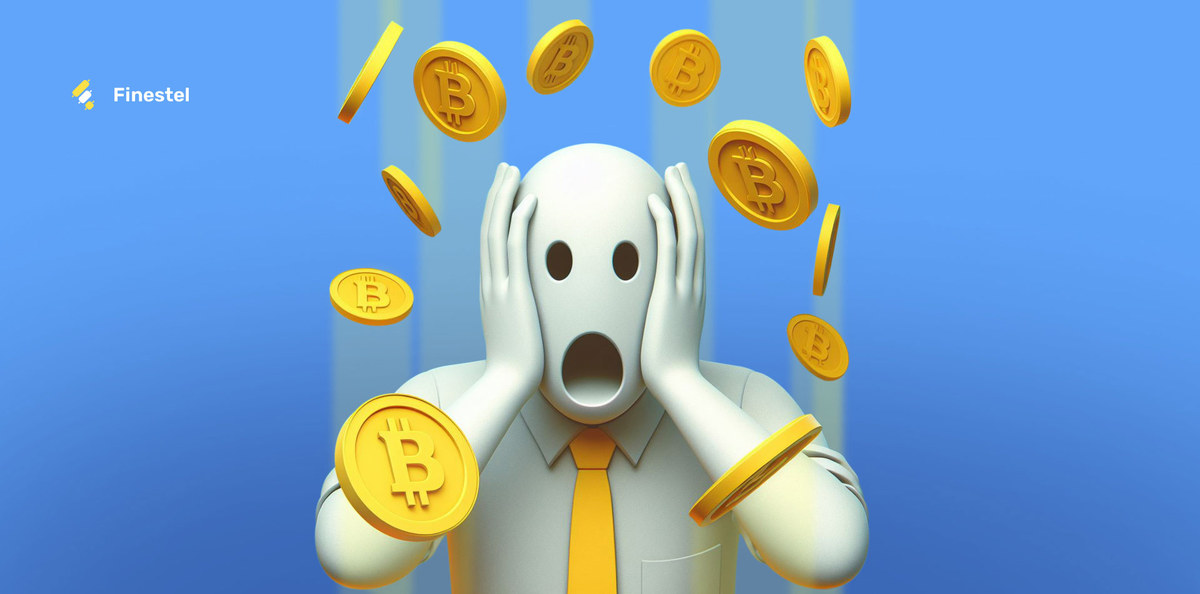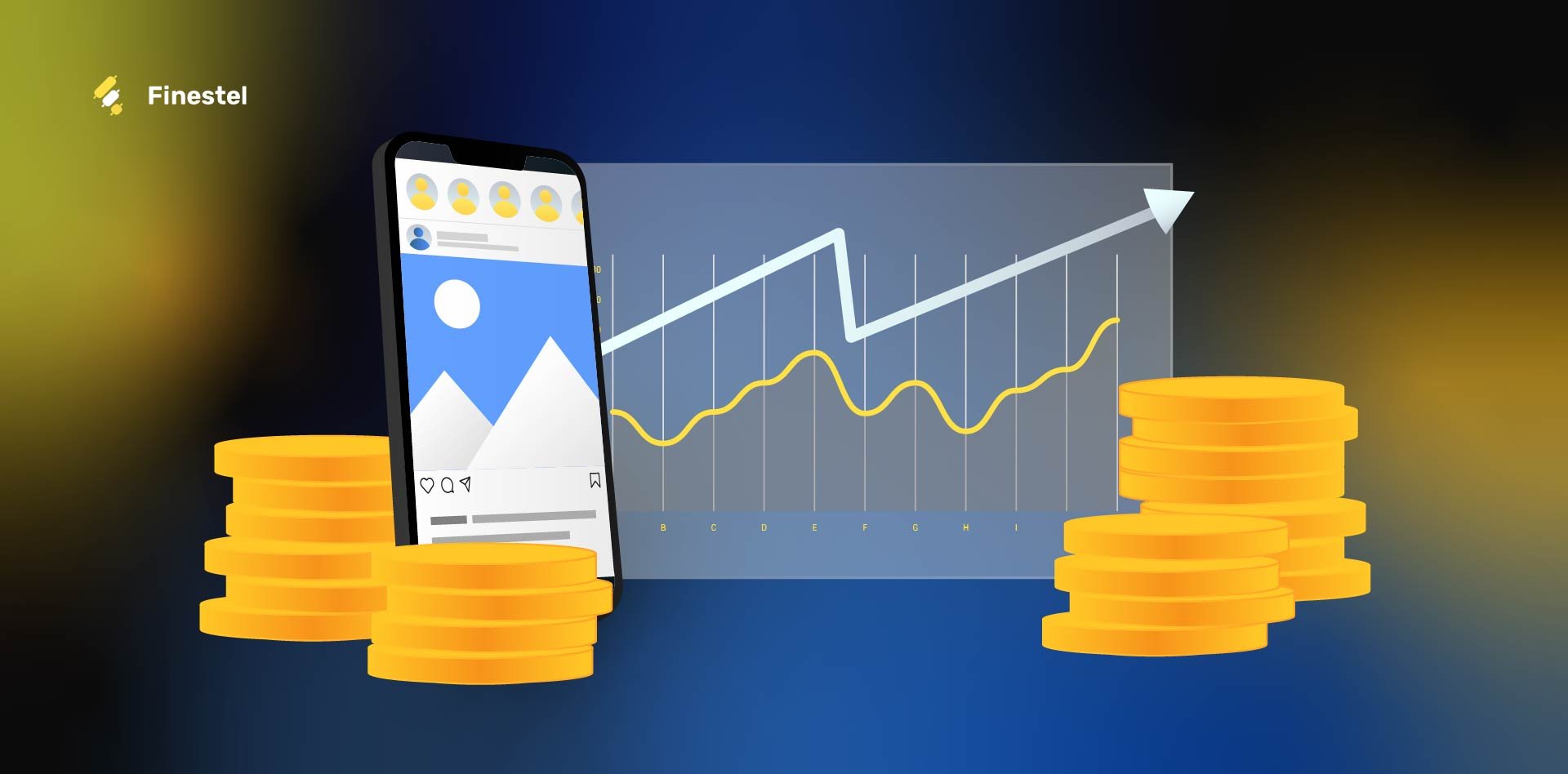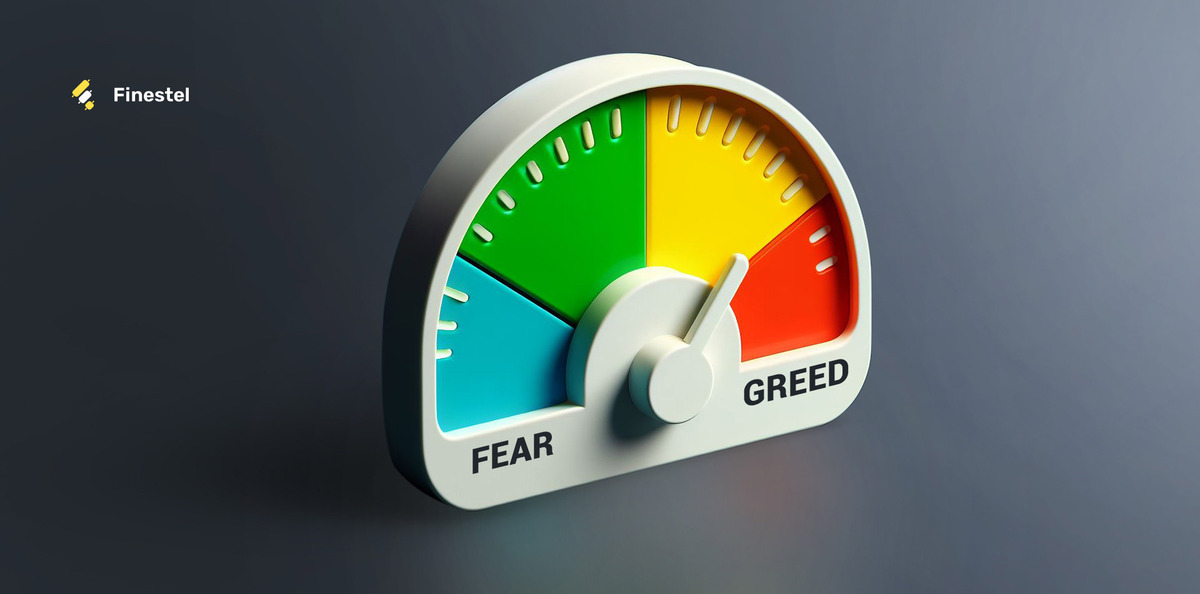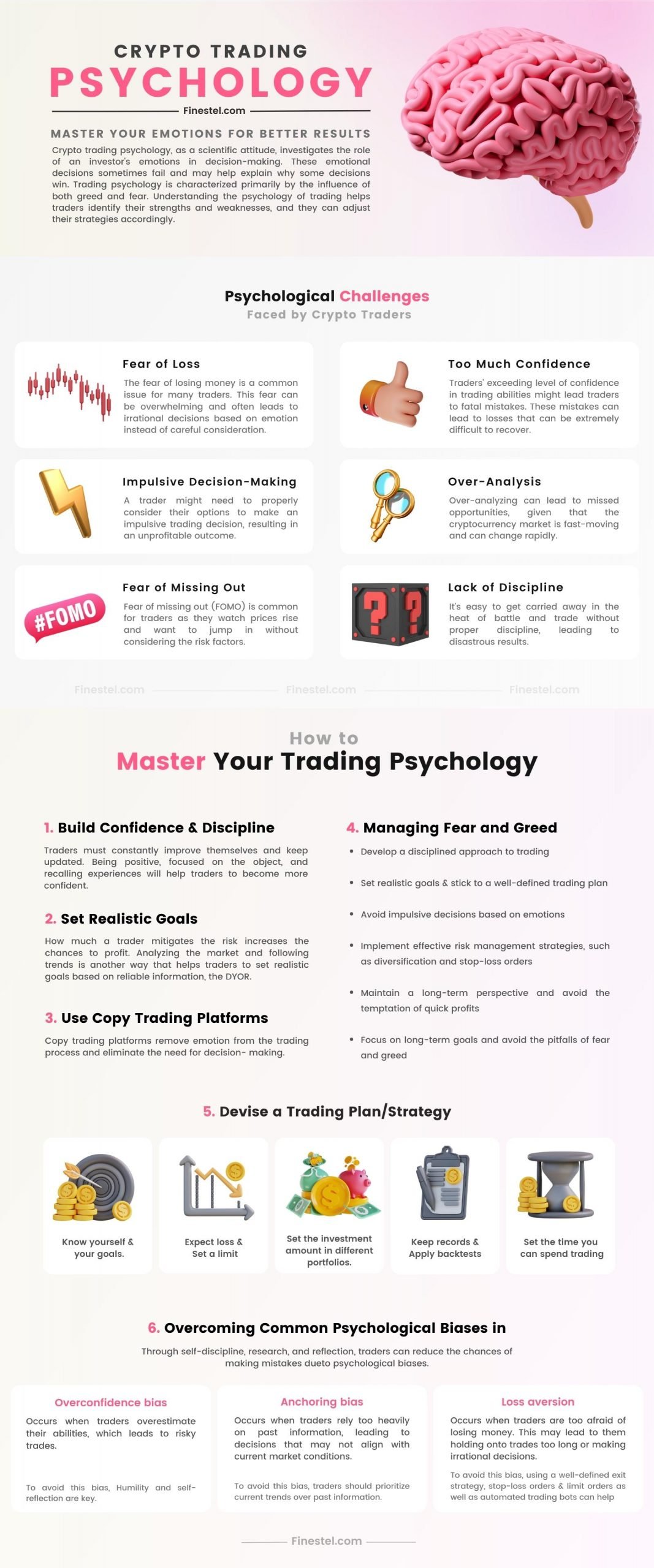Crypto trading psychology, as a scientific attitude, investigates the role of an investor’s emotions in decision-making. These emotional decisions sometimes fail and may help explain why some decisions win. Trading psychology is characterized primarily by the influence of both greed and fear. Understanding the psychology of trading helps traders identify their strengths and weaknesses, and they can adjust their strategies accordingly.
This knowledge helps them make sounder decisions when trading, which can lead to more tremendous success in the long run. A cognitive bias is an unconscious mental process that affects our decision-making abilities. However, identifying and controlling these cognitive can be hard, but it’s essential to recognize them to make wise trading decisions.
Some stimulants affect our decisions in our trades. Some of them affect our choices in the market from the inside, including thoughts, feelings, and behaviors. Crypto trading Psychology plays a tremendous role in trading success regarding cryptocurrency. By understanding the psychological aspects of trading, traders can adjust their strategies and make better decisions. This can lead to more tremendous trading success in the long run.
This article by Finestel explores the psychological impact of trading decisions, including the influence of desire on risky choices. Traders can benefit from understanding their needs and goals and formulating a personalized strategy to manage emotions and make informed decisions.
What Is Trading Psychology?
Crypto trading psychology is an important skill a trader must consider as a practical trade method. It relates to the mental processes and behaviors used when trading and involves the trader’s emotions, beliefs, and attitudes. It is about managing one’s emotions to achieve a desired trading outcome. A good understanding and mastery of trading psychology is a fundamental cognitive for any trader who wants to make winning trades consistently.

Trading psychology covers the two significant aspects of trading – the psychological and the technical. On the psychological side, it involves understanding the emotions of trading, such as fear, greed, and excitement. It also involves learning to control these emotions and remain composed during volatile market conditions. On the technical side, it involves mastering the tools and strategies involved in trading, such as charting, analysis, and order entry. It is essential to understand that applying both the technical and psychological aspects of trading to succeed in the markets.
It’s worth noting that crypto trading psychology is not just theoretical – it has practical implications for traders in the real world. It is a practical skill a trader must develop and hone to be effective in the markets. Trading psychology involves forming a set of habits and rules the trader must adhere to. It is also essential to develop the discipline to stick to the established trading rules, no matter how difficult the market conditions become. Only this combination of psychology and technical proficiency will enable a trader to make consistent market profits.
Understanding the Role of Emotions in Crypto Trading
Cryptocurrency trading is a complex and intense process. Learning to make the best trading decisions involves more than just reading technical indicators and market conditions. Emotions play a significant role in the process, and how they play out determines whether a trader succeeds or fails. The first emotion to address is fear. Fear is a powerful emotion that often causes traders to act irrationally and make poor decisions.

Another emotion is greed, which can cause traders to hold onto their positions for too long, hoping to reap greater profits. Hope is another emotion involving trading that can have a positive or negative impact depending on how it is used. On the positive side, hope can help traders stay motivated and persevere during unstable market conditions. On the other hand, hope can be dangerous if used to make trading decisions. When traders become overly hopeful, they can become blind to the realities of the market and end up trapped in a losing position.
Confidence can be a powerful tool in the crypto trading process. A confident trader can make sound decisions based on their knowledge and experience. Conversely, traders needing more confidence may second-guess themselves and make costly mistakes.
Psychological Challenges Faced by Crypto Traders
With the rise of Bitcoin and other cryptocurrencies, investors worldwide can earn from the volatile markets of this digital asset. However, trading cryptocurrency comes with its own set of psychological challenges. Trading in the volatile digital asset market opens the door for traders to face unique psychological challenges. Although the returns can be huge, it is essential to note that not all traders make it out ahead of the game. With the risks set in an uncertain market environment, traders can experience six psychological challenges:
- Fear of Loss: The fear of losing money is a common issue for many traders. This fear can be overwhelming and often leads to irrational decisions based on emotion instead of careful consideration.
- Impulsive Decision-Making: A trader might need to properly consider their options to make an impulsive trading decision, resulting in an unprofitable outcome.
- Too Much Confidence: Traders’ exceeding level of confidence in trading abilities might lead traders to fatal mistakes. These mistakes can lead to losses that can be extremely difficult to recover.
- Over-Analysis: Over-analyzing can lead to missed opportunities, given that the cryptocurrency market is fast-moving and can change rapidly.
- Fear of Missing Out (FOMO): Fear of missing out (FOMO) is common for traders as they watch prices rise and want to jump in without considering the risk factors.
- Lack of Discipline: It’s easy to get carried away in the heat of battle and trade without proper discipline, leading to disastrous results.
How Does Trading Psychology Affect Profits in Crypto Trading?
Understanding the psychological aspects of crypto trading is The first step to success in the widely fluctuating crypto market. The most important psychological factor is understanding the market sentiment, which is the general attitude of the market participants towards a particular asset.
Controlling emotions helps traders more actively manage their risk and profit by cutting potential losses. When traders learn how to overcome their destructive emotions with the help of trading psychology, it helps them make mindful decisions. It allows traders to set appropriate SL/TP limits, determine the best deal size, and use other risk management factors properly.
How to Master Your Trading Psychology
First, trading psychology is the art of controlling emotions, and mastery over its aspects is the first stage of further success. We are aware that trading is an emotional experience that is anxious. It is natural that these feelings sometimes get the better of us and get in the way of rational thinking.

Trading psychology can be a good solution to relief from these pressures only if we follow the guide below. Having a trading plan to define the map of the path would be extremely helpful for traders. Taking regular breaks from the market to meditate and relax and having a daily occupation are other beneficial solutions.
To believe that we might lose in some of our trades, we need to practice more and more. Proper risk management strategies, especially Stop-Loss and Take-Profit, always help. We can backtest trading strategies for a particular instrument to see the outcome. We can Backtest our strategies manually, but backtesting software is available in the market.
Devise a Trading Plan/Strategy
There are many ways to customize your trading policies, and one is to have a trading plan. Choosing one or more or a combination of common trading strategies that best meet your trading targets would be helpful. Besides, following news on media and social media lets you be updated, especially when the topic is a digital asset. However, a few guidelines would help traders and even novice investors enjoy this journey with fewer risks.
- Try to know yourself and define your goals.
- Expect loss and determine a limit instead of escaping from it.
- Keeping records and applying backtest, if necessary.
- Determining the time you can spend trading.
- Decide how much money you want to invest in different portfolios.
Managing Fear and Greed in the Crypto Market
To manage fear and greed, traders should develop a disciplined approach to trading. This involves setting realistic goals, sticking to a well-defined trading plan, and avoiding impulsive decisions based on emotions. Traders should also implement effective risk management strategies, such as diversification and stop-loss orders, to minimize losses and protect their capital.
Another helpful strategy is to maintain a long-term perspective. The crypto market can be highly volatile in the short term, but over the long term, it has demonstrated significant growth and potential. By focusing on long-term goals and avoiding the temptation to make quick profits, traders can avoid the pitfalls of fear and greed and achieve tremendous success in the crypto market.
Overcoming Common Psychological Biases in Trading
Psychological biases enable traders to take the necessary steps to prevent them from affecting their decisions. Through self-discipline, research, and reflection, traders can reduce the chances of making mistakes due to psychological biases.
There are a few factors that we will discuss below:
Overconfidence Bias: Overconfidence bias occurs when traders overestimate their knowledge and abilities. As a result, they are more likely to enter trades that may hold greater risks than rewards. Traders need to remain humble and practice self-reflection to overcome this bias.
Anchoring Bias: Anchoring bias occurs when traders place too much emphasis on past information when making decisions. This can lead to decisions that don’t reflect current market conditions. To avoid this bias, traders should avoid getting too attached to past information and instead focus on current trends.
Loss Aversion: Loss aversion occurs when traders are too afraid of losing money. This may lead to them holding onto trades too long or making irrational decisions. To overcome loss aversion bias, traders can develop a well-defined exit strategy, use stop-loss orders and limit orders, and consider automating their trading with the help of trading robots.
Building Confidence and Discipline in Crypto Trading
Taking steps seems necessary to trade more Confidently and Disciplined in Crypto Trading. Traders also must be disciplined. It requires having enough knowledge and monitoring the market. Besides checking social media, market influencers play a crucial role in their success.
Traders must constantly improve themselves and keep updated. Being positive, focused on the object, and recalling experiences will help traders to become more confident. Applying effective risk management strategies helps traders relax and trade with confidence.
Set Realistic Goals
Setting trading goals helps traders to enhance their potential profit when trading in the crypto markets. If Google, how do you set trading goals? There would be one common item that suggests managing risks properly. How much a trader mitigates the risk increases the chances of profit. Analyzing the market and following trends is another way that helps traders set realistic goals based on reliable information, the DYOR.
Read more about news based trading strategy.
Analyzing the market always helps, but more is needed because everything varies in all your trades except one element: the traders themselves. Then, keeping records of trades, reviewing them frequently, and comparing the market situation enables traders to set more realistic goals. Another thing that helps traders set realistic goals is setting a rational profit target per the size of the deal. Being realistic about the expected returns lifts the pressure off investors’ shoulders.
Use Copy Trading Platforms
Copy trading platforms remove emotion from the trading process and eliminate the need for decision-making. By copying the trades of successful traders, investors can reduce psychological pressure and minimize the risk of potential losses. Joining a copy trading platform also provides a good opportunity to learn and increase confidence in the market.
The Impact of Social Media and News on Trading Psychology
Social media and news are significantly impacting the psychology of traders in the crypto market. Accessing real-time information anywhere has enabled traders to react quickly to changing market conditions. Social media and news give traders a more comprehensive view of their trading markets. They can instantly access news, data, and opinions from various sources, enabling them to gain insights into the market dynamics that would have previously been more difficult to obtain.

Besides all the positive effects of the news and social media on traders, there are negative effects hidden in this new era, inseparable parts of our lives. We witness plenty of fake news and false information, mostly on social media platforms and less in the news. Constant exposure to news and social media can heighten emotions, leading traders to overreact to news and market fluctuations. This can lead to impulsive decisions, higher levels of risk-taking, and poor money management.
Learn more about Correlation trading in the cryptocurrency market.
How to Develop a Growth Mindset for Long-Term Success
Developing a growth mindset is the key to unlocking potential and reaching goals. Research shows that those with a growth mindset are more likely to achieve professional, personal, and educational success than those with a fixed mindset. A growth mindset is a belief that your abilities and talents are not fixed but can be developed and improved over time. This means that no matter your starting point, you have the potential to succeed. On the contrary, a fixed mindset is characterized by believing that your abilities and talents are predetermined and cannot be changed.
Traders must challenge themselves. As they say, “No risk, no reward”. Taking risks and challenging yourself to do things outside your comfort zone will allow you to expand your skillset and open up new opportunities. You will also better cope with failures and setbacks by viewing them as opportunities for learning and growth.
Staying motivated can be done by setting realistic goals and breaking them down into smaller, achievable steps. Write down your goals or create a vision board to record your progress and remind yourself of what you are working towards. Celebrating your successes, no matter how small, will also help to keep you motivated and focused. Never underestimate the power of a positive attitude. Having an optimistic outlook and believing in your ability to succeed (no matter the odds) will help you to stay motivated, work hard, and achieve success.
The Role of Patience and Timing in Crypto Trading
Every trader must embrace a proper strategy that tells them where to get in and when to leave the position. Impatient traders mostly agonize over excessive losses, more stress, and waste lots of their energy. Avoid acting impatiently and waiting for the setup to fully form and start your trade instead of anticipating the trigger and getting in too early.
Traders who get into trades too early adjust the parameters of their strategy, and naturally, they see a few more price bars before the trade is triggered. The two virtues of a trader are patience and discipline, and the reward would benefit their trades. Calculating the right time to enter a position is a good skill. Still, this skill without patience will bring no returns for traders because not reaching the predicted price results in losing benefit opportunities.
Crypto Trading Psychology Infographic
Conclusion
The fast growth in the Cryptocurrency market motivates more people to enter this new market every day. Crypto trading is becoming increasingly popular as more people get their hands on digital assets, but it’s important to understand the psychological factors at play. Fear, greed, risk management, and emotional discipline are essential elements of any successful crypto trading strategy. Fear is a powerful force in trading and can mean the difference between success and failure.
Fear of missing out can lead to rash decisions about buying or selling and losses when not properly managed. The key is to develop a trading strategy and stick to it despite market fluctuations. Greed is also a common emotion in trading, as traders look to capitalize on the price rise. While every trade has an element of risk, it’s important to recognize the difference between taking a calculated risk and mindlessly chasing a profit. The key to successful trading is an understanding of risk management.
This means understanding the market, analyzing the risks associated with each trade, and setting realistic objectives. Risk management also means having a stop-loss order in place, as well as an exit strategy. Emotional discipline is essential for successful trading. Fear and greed can lead to risky positions and cause traders to make bad decisions. Developing and sticking to a trading plan can help traders make thoughtful, informed decisions rather than acting on their emotions.
FAQ
How can I control my emotions while trading cryptocurrencies?
To control your emotions while trading cryptocurrencies, design a trading plan that includes your risk tolerance, objectives, and strategies. Stick to your plan and focus on long-term goals. Take regular breaks and avoid making impulsive decisions to chase losses. Refrain from deviating from your plan and trust that it will lead to success in the long run.
What are some common psychological biases that affect crypto traders?
Common psychological biases that affect crypto traders include overconfidence bias, anchoring bias, herd mentality, and loss aversion. Other biases that may impact trading decisions are endowment bias, outcome bias, availability bias, confirmation bias, and more.
How do fear and greed impact my trading performance?
Fear and greed can negatively impact your trading performance. Fear can lead to missed opportunities or premature exits from trades, while greed can result in taking on too much risk or holding onto positions for too long, resulting in losses.
How can I manage stress and prevent burnout in crypto trading?
Setting realistic goals, spreading investments across multiple markets, and taking care of your physical and mental health by getting adequate rest, eating a balanced diet, and engaging in enjoyable activities can help manage stress and prevent burnout.







Very interesting details you have mentioned